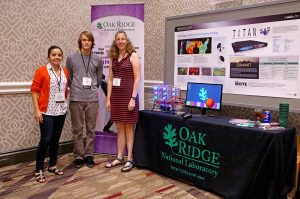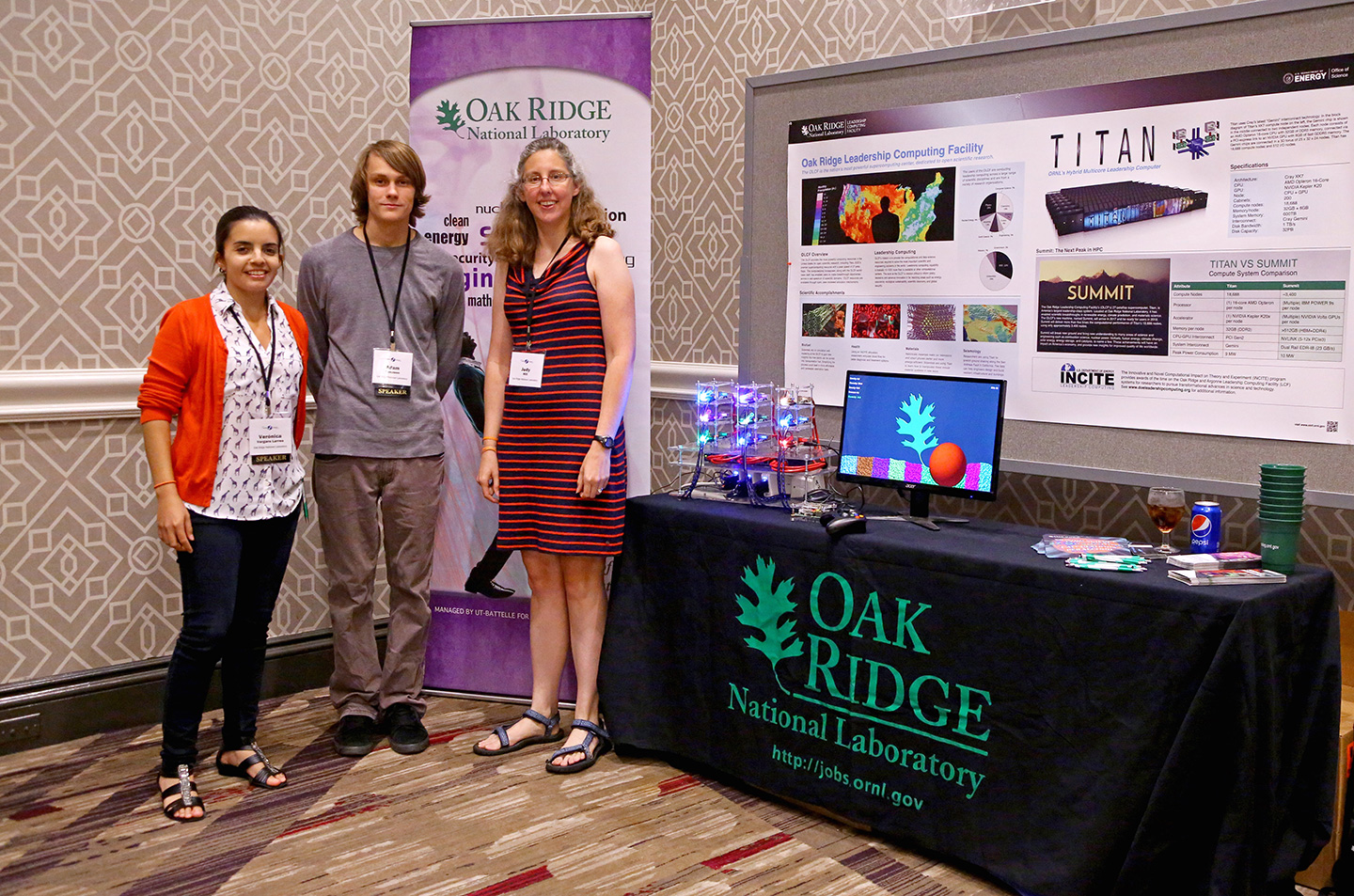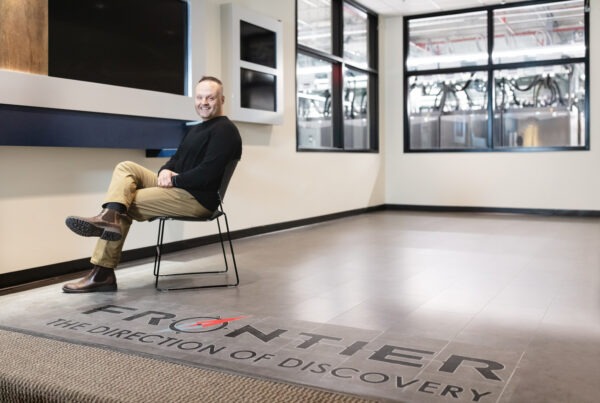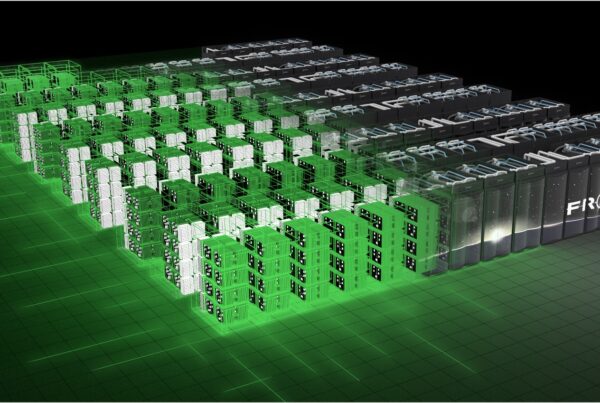
OLCF Staff members (left to right) Verónica Vergara Larrea, Adam Simpson, and Judy Hill presented at the poster session during the 2016 CSGF Annual Program Review.
For the sixth year in a row, staff from the Oak Ridge Leadership Computing Facility (OLCF) networked with promising graduate fellows and introduced them to research opportunities during the US Department of Energy’s (DOE’s) Computational Science Graduate Fellowship (CSGF) Annual Program Review.
The meeting—which took place this year from July 25 to 28 in Arlington, Virginia—provides CSGF fellows with an outlet for research discussion and one-on-one meetings with DOE laboratory staff. The event also offers interactive high-performance computing (HPC) training sessions that give first-year fellows a proper introduction to the fundamentals of supercomputing and advanced training sessions on more complicated topics like parallel algorithm design and code optimization.
As part of the program, each fellow must complete a summer practicum at a DOE national laboratory of his or her choosing within the first 2 years of the fellowship. The CSGF Annual Review serves as a springboard for new fellows to gather the information and resources necessary for selecting laboratories for their respective practicums.
Judy Hill, a computational scientist at the OLCF—a DOE Office of Science User Facility located at Oak Ridge National Laboratory (ORNL)—and an alum of the fellowship, said the networking opportunities and the ability to form relationships are the reasons she returns to the review every year.
“You develop a relationship with the fellows,” she said. “There is a lot of mentoring that goes on during the week. That’s the part I look forward to—the one-on-one time with the fellows and the alums.”
The meeting also typically includes hands-on workshop sessions on HPC and related topics. This year a multilaboratory component of the workshop included presentations from staff members of two new participating organizations—Argonne National Laboratory and the Energy Sciences Network—in addition to staff members from ORNL and the National Energy Research Scientific Computing Center, which both participated last year.
Before the review Verónica Vergara Larrea and Adam Simpson, user support specialists at the OLCF, led a presession webinar about basic aspects of HPC, from accessing the system to submitting and running parallel jobs. During the review they also led a session on GPU-accelerated computing that provided fellows with hands-on experience using OpenACC, a programming standard for parallel computing, as well as access to Metis, a two-cabinet Cray XK7 system with the same architecture as Titan, the OLCF’s flagship supercomputer.
After students became acquainted with OpenACC, Vergara Larrea and Simpson introduced a smoothed-particle hydrodynamics (SPH) code, which simulates the behavior of fluids. The students then had the opportunity to use OpenACC to accelerate the SPH code using the tools they learned about during the session.
The 2016 workshops included four sessions covering intermediate and advanced levels of supercomputing, an improvement from previous years in which the workshops focused mainly on introductory topics. In general the fellows are already knowledgeable about computational science as applied to their particular scientific domains. Thus, the workshops aimed to expand the fellows’ knowledge of parallel computing challenges and opportunities that are applicable across disciplines.
About the fellowship
The DOE CSGF is unique in that it includes people from all areas of science and engineering. One of the meeting’s main objectives is to allow for cross-disciplinary collaboration between people from various scientific backgrounds. Fellows’ areas of study include branches of physics, chemistry, biology, engineering, and mathematics.
The fellowship provides participants with a yearly stipend of $36,000, a tuition and fee payment during the appointment period, and a 12-week practicum at one of the DOE national laboratories. These benefits make the fellowship a competitive opportunity for which only 2 percent of applicants receive an offer.
Oak Ridge National Laboratory is supported by the US Department of Energy’s Office of Science. The single largest supporter of basic research in the physical sciences in the United States, the Office of Science is working to address some of the most pressing challenges of our time. For more information, please visit science.energy.gov.






